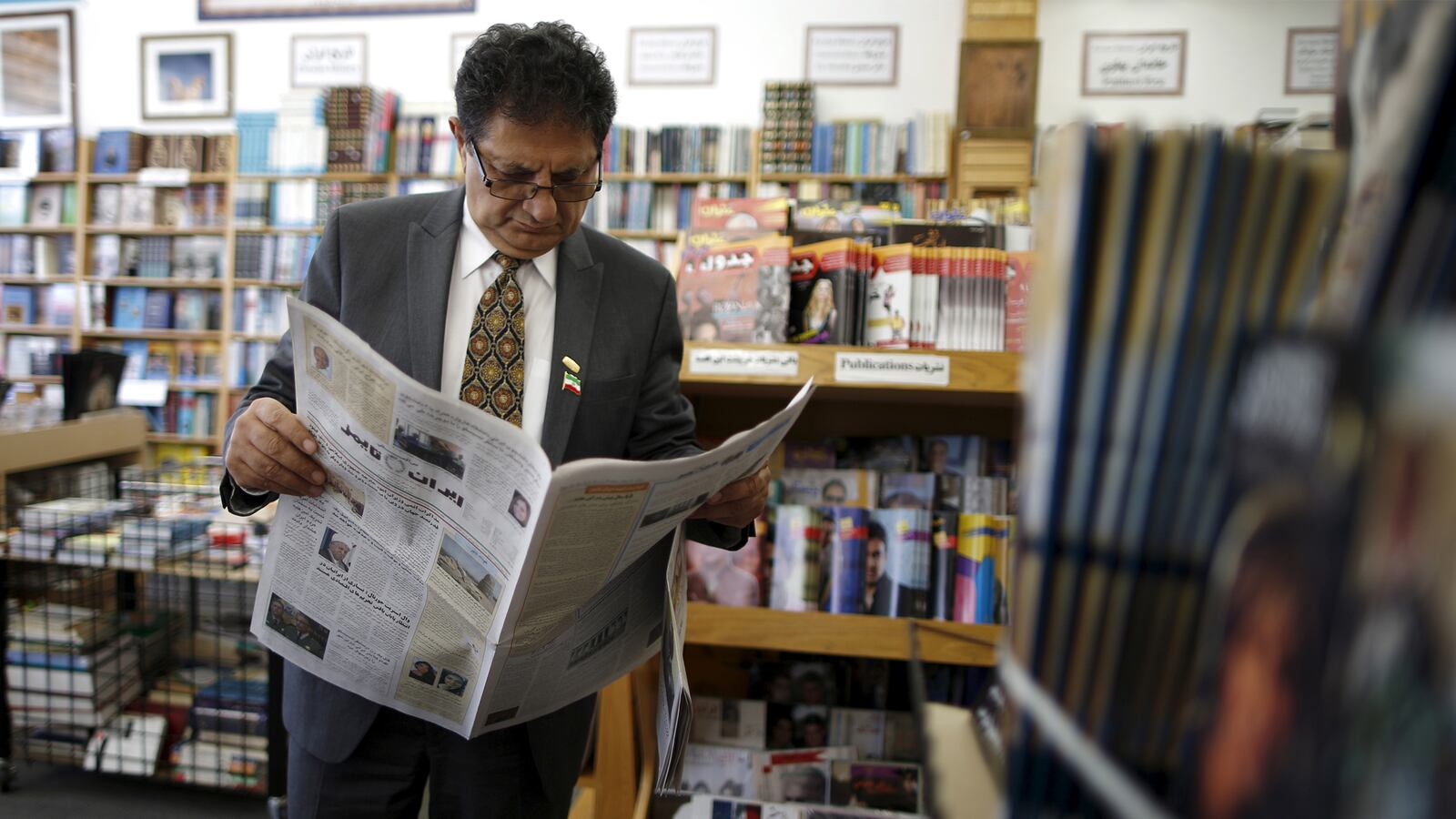We have heard from just about everyone on the Iran deal, from President Obama to Donald Trump to Benjamin Netanyahu to many, many in between. But how do Muslim Americans view the deal? I’m sure many non-Muslims are thinking that they are all cheering it because the deal helps Iran. Well, anyone holding that view clearly doesn’t know too many Muslim Americans.
On Tuesday, I reached out to a wide cross section of Muslim Americans about their views on the deal with Iran, from community leaders to religious clerics to even a well-known Iranian American comedian. Overall their responses can best be summed up as cautious optimism. But the regional divide we see amongst Muslims in the Middle East was also present in the reactions of these Muslim Americans.
First off, the Iranian-American Muslims I contacted were in general very excited at the prospect of the United States and Iran fostering better relations. Sarah Sakha, a “proud” first-generation Iranian American, explained to me via Facebook that the deal “honestly gives Iranians and Iranian-Americans all around the world hope.” She added, “And now, under the framework, the U.S. can enjoy Iranian pistachios, the ultimate peace offering!”
Maz Jobrani, the best-known Iranian American comedian in the United States, explained by email that the deal “is a great thing for both the Iran and America. I’m especially happy for the Iranian people because the lifting of the sanctions should be a great relief to them.” He added, “It’s a good day when diplomacy wins.”
While Iranian American filmmaker Negin Farsad was very supportive of the deal, she noted that it “was tantamount to Iran submitting to an anal cavity search all the time.” Farsad urged Republican lawmakers to “not take a knee-jerk anti-peace stance” and instead “look at Iran as a potential new market to sell American goods, rather than a new war front.”
Muslim Americans of South Asian backgrounds were universally supportive of the deal, although some expressed caution. Imam Shamsi Ali, who is based in New York City, was “very happy to hear that there is a hopeful, peaceful solution to the conflict, as opposed to war.” Wajahat Ali, a journalist and author, echoed Ali’s sentiments, noting that the deal “is a positive step towards reconciliation between the United States and Iran.” But, he added, “It will take years for the two nations to trust each after decades of mistrust and fear.”
Mansoor Shams, a former U.S. Marine, commented via social media, “This deal proves through mutual respect peace can be achieved.” And while supportive of the deal, some others, like journalist Haroon Moghul, were resigned to the fact that “the only other option is war with Iran, and such a war would be far more challenging for us than the wars in Iraq and Afghanistan.”
Finally, the African American Muslims I contacted too were supportive. For example, Margari Aziza Hill of the Muslim Anti-Racism Collaborative stated, “I think this is a promising moment and I look forward to cultural and intellectual exchanges between our respective nations and greater stability in the region.” (My apologies to the other Muslim American communities I could not include here but there are too many at this point!)
But, and whenever you are dealing with issues in the Middle East, there is always a but, some Muslim Americans deeply questioned how much we could trust Iran and some went further than that. The most vocal opponents to the deal were Syrian Americans. As most are aware, the Iranian government has been supporting Syrian leader Bashar al-Assad in the Syrian civil war where he has slaughtered more than 100,000 Syrian civilians in the past four years.
Sarab Al-Jijakli, president of the Network of Arab American professionals, expressed the sentiment of many Syrian American Muslims: “There is a concern that this deal is a green light for Iran to expand its bloody foreign intervention in Syria to ensure the survival of the Assad regime.”
Other Syrian Americans were even more critical. Said one: “This gives the Iranian government a chance to pour even more money into Syria to continue the slaughter they have been backing.” And another Syrian American told me, “Ending Iran’s human-rights abuses against its people and stopping the slaughter of Syrians should have been the first precondition to any deal,” adding that, “this deal is good for Iranian people, bad for the greater Middle East and the world.”
It should be noted that Assad has publicly applauded the Iran deal, further adding to their concerns this deal will help him stay in power. Hezbollah leader Hassan Nasrallah has done the same.
Finally, I spoke with a Palestinian American who was born and raised in Israel, is an Israeli citizen, and still has a large family in Israel. He clearly didn’t trust the Iranians. While he didn’t believe Iran would ever launch a nuclear strike at Israel, his concern was that the extra money Iran stands to see with the lifting of sanctions could translate into Iran funding even more terrorism.
My view of the deal is very similar. I say that because I, too, have many Palestinian relatives in the West Bank. And my fiancée is an Israeli citizen (she is Palestinian by heritage). So if Iran ever dropped a nuclear bomb on Israel, many members of my family would be killed. Although I doubt that would happen, given that the punishment for Iran truly would be the end of Iran as a nation. But Iran could use the additional revenue when the sanctions are lifted to expand its influence in the region and wreak even more havoc.
We don’t know if Iran will live up to its obligations under the new agreement. But if you believe in diplomacy over war, then don’t you need to at least give peace a chance?






